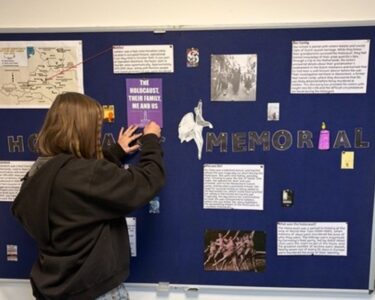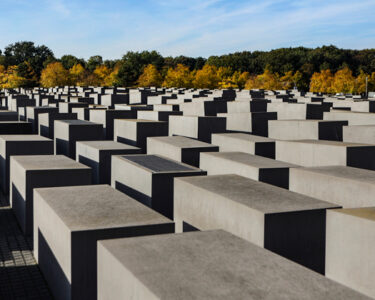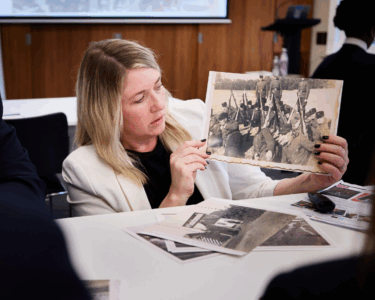“The student research shows the importance to reflect on current schemes of work and weaknesses that need addressing”
We are pleased to announce that after 12 months of data collection, over 8000 students from 74 schools across England have taken part in our survey to find out what young people know and think about the Holocaust. We are now beginning the fascinating and extensive process of analysing the data and exploring the implications of the findings for students, teachers, policy makers and academics – both nationally and internationally. This will be a complex task in view of the large amount of information we have gathered in the survey, as well as the rich material we are collecting through focus group interviews with over 200 students.
Amongst other things, we have examined: students’ substantive knowledge of the Holocaust; their recognition of key words and images pertaining to the Holocaust; the sources of their knowledge within and outside of school; their attitudes towards learning about the Holocaust; as well as assessing their attitudes towards other salient variables like fairness and equality. Consequently, this research is very powerful for giving a portrait of students’ exposure to Holocaust education and the extent that they appear to engage with, and are responsive towards learning about the Holocaust. In turn, we hope that the research findings will play a pivotal role in informing future teaching and learning in this field – and recent discussions with teachers suggest this will certainly be the case.
Last month, we welcomed our new Beacon School teachers to the IOE for an intensive 5-day residential CPD programme, and shared with them a small number of preliminary survey findings to demonstrate some misconceptions about the Holocaust that have emerged across all year groups. The teachers were surprised by some of these findings, and provided valuable interpretations about how these misconceptions may have developed. There was unanimous agreement that the findings from the student research will be essential for informing Holocaust pedagogy in schools:
“Some of the misconceptions of the students are surprising (and horrifying). I need to make sure these are addressed in my scheme of work.”
RE teacher“The student research shows the importance to reflect on current schemes of work and weaknesses that need addressing”
History teacher“I’ll need to communicate [the student research findings] and other key facts to other departments directly involved in teaching the Holocaust, for example English, to prevent students being misinformed”
History teacher“Some really interesting statistics, particularly with students’ understanding. This has helped me to identify what I think needs teaching/clarifying for students”
RE teacher
As we approach the final stages of this research project, we wanted to thank all of the teachers and students who have been involved. Over 9,500 students have participated in this research project by taking part in pilot studies, completing the survey, and sharing their views in focus groups. This has enabled us to carry out the largest study of students’ knowledge and understanding of the Holocaust anywhere in the world – so many thanks to all of the students who have contributed.



